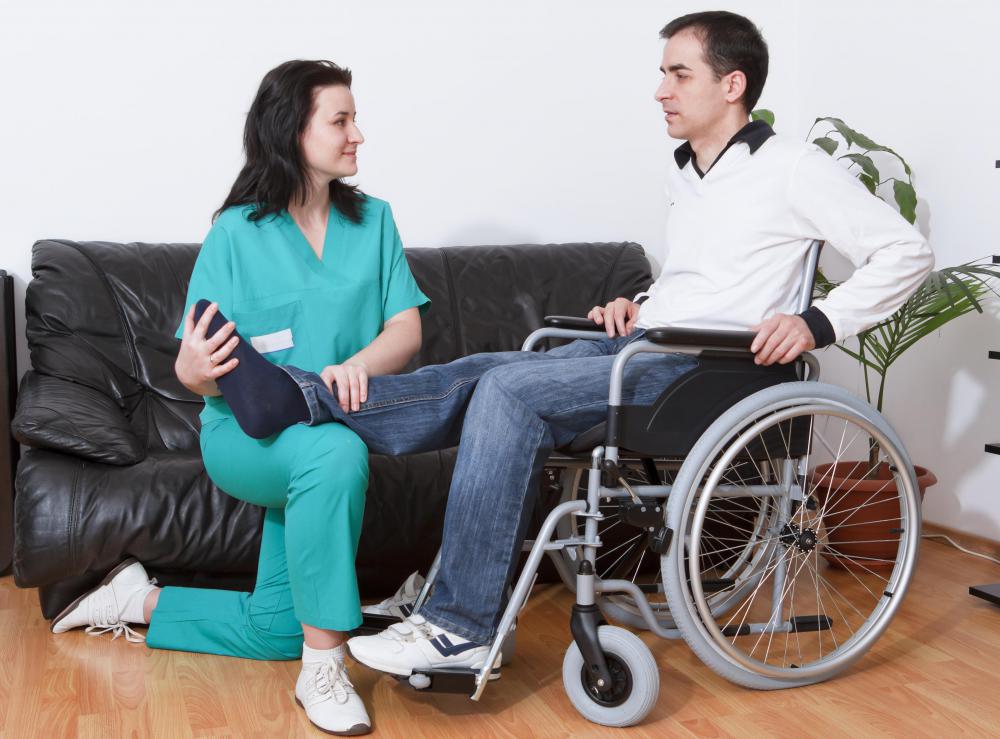At WiseGEEK, we're committed to delivering accurate, trustworthy information. Our expert-authored content is rigorously fact-checked and sourced from credible authorities. Discover how we uphold the highest standards in providing you with reliable knowledge.
What is Paresis?
Paresis is a condition that causes partial loss of movement in a particular area of the body. The term general paresis refers to psychological impairment due to damage to the brain from an untreated infection or other health condition. Untreated infections, injury, and preexisting health conditions are all primary causes of paresis.
Patients who suffer from paresis retain some motor function, though they do experience varying levels of muscle weakness and fatigue. Limbs are commonly affected, as are the gastric system, the eyes, and the vocal cords. Some forms of this condition are temporary, and others are permanent.

This condition often affects one or more limbs. Monoparesis refers to movement impairment in one arm or leg, paraparesis occurs in both legs, hemiparesis affects the arm and leg on one side of the body, and tetraparesis affects all four extremities. Paresis of the limbs is often caused by an illness, such as multiple sclerosis, that causes damage to the tissues around the spinal cord, resulting in muscle deterioration and weakness. Injury to the spine and spinal cord can also lead to impaired limb movement. Some patients with limb paresis regain more function through physical therapy and exercise programs to strengthen the muscles and increase range of motion.

Gastroparesis is often temporary, arising as a complication of an acute illness. Temporary gastroparesis can also result from certain cancer treatments or eating disorders, including anorexia nervosa and bulimia. The chronic form of the condition arises from complications from many different illnesses, including Parkinson's disease, diabetes, and fibromyalgia. Dietary changes, prescription oral medications, and gastric neurostimulator implants that help move food through the stomach can ease the symptoms of the condition.

Ophthalmoparesis is caused by disorders and injury that affect the nerves and muscles in and around the eyes. Graves disease can lead to mechanical restriction of eye movement and other conditions, such as cavernous sinus syndrome and raised pressure in the skull, can damage the nerves responsible for eye movement. A thiamine deficiency may also be responsible. Treatment for ophthalmoparesis problems focuses on resolving the underlying condition.

Vocal cord paresis is usually caused by a viral infection, injury to the throat, or a tumor on the laryngeal nerve around the vocal cords. In some cases, psychological and emotional problems can cause vocal cord paresis that does not have a physical cause. Psychological treatment and prescription medications to strengthen the tone and volume of the voice can help prevent the symptoms from worsening. Surgery often helps correct restricted movement of the vocal cords, though the effects may be temporary.
AS FEATURED ON:
AS FEATURED ON:
















Discuss this Article
Post your comments